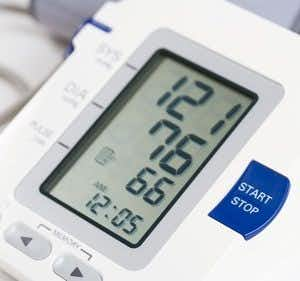
A key component of medical treatment is blood pressure management. Whenever you visit a doctor’s office, you will almost always have your blood pressure measured. Guidelines from the American College of Cardiology (ACC) and the American Heart Association (AHA) require health professionals to seek a systolic blood pressure goal of 130 or below and a diastolic blood pressure goal of 80 or below. Doctors are supposed to initiate blood pressure treatment if patients cannot get it down with lifestyle interventions alone. How well do medications work to reduce heart attacks and prolong life? A new British study challenges American guidelines.
A Truck Driver Can’t Achieve the Goals:
Q. I’m 34 years old and drive a truck commercially for a living. The Department of Transportation requires us to have regular physicals. My blood pressure (145-155/80-85) has caused the doctors concern. They all urged me to lose weight, lower my salt intake and exercise regularly.
I lost 90 pounds and now eat 1700 mg or less of sodium a day. I ride a stationary bike for 30-60 minutes every day and have a resting pulse of about 55 bpm.
My blood pressure is 145/78 at this very moment, even after living this lifestyle for two years. This is just who I am. Obviously, I’m healthier, but my efforts did nothing for my “hypertension.”
A. Congratulations! Losing weight and exercising regularly are among the most important steps you can take for good health.
Guidelines for physicians encourage people with blood pressure higher than 130/80 to implement lifestyle measure like yours. If that doesn’t work to lower blood pressure, doctors are supposed to prescribe antihypertensive drugs.
Blood Pressure Treatment: Did It Make A Difference?
A new study, however, calls U.S. blood pressure guidelines into question (JAMA Internal Medicine, Oct. 29, 2018). British researchers reviewed the records of over 38,000 people with untreated blood pressure between 140/90 and 159/99. Half of these individuals were prescribed medications while the other half were not.
At the end of six years of follow-up, there was no difference in the rates of heart attack, stroke or death.
Here is the conclusion of the British researchers:
“This prespecified analysis found no evidence to support guideline recommendations that encourage initiation of treatment in patients with low-risk mild hypertension. There was evidence of an increased risk of adverse events, which suggests that physicians should exercise caution when following guidelines that generalize findings from trials conducted in high-risk individuals to those at lower risk.”
High Risk vs. Low Risk Hypertension:
Everyone recognizes that people with serious hypertension must be treated if they cannot get their blood pressure under control with diet and exercise. Very high blood pressure increases the risk for heart attacks, strokes, kidney damage, visual problems and early death.
But where is the cutoff? There is no question in our mind that lower blood pressure is better than higher blood pressure. If you can get your blood pressure reasonably close to 130/80 by losing weight, meditating and exercising, that is great.
The British Cutoff is Very Different!
If you go back and look at the British study, you will discover that people with systolic blood pressure between 140 and 159 and diastolic blood pressure between 90 and 99 did not benefit from blood pressure treatment with medications. That result contradicts American guidelines.
The leadership of the American cardiology community will no doubt challenge the British conclusions that blood pressure treatment with drugs for mild hypertension did not prevent cardiovascular disease or prolong life.
The British scientists added insult to injury by stating that:
“…treatment exposure may be associated with an increased risk of adverse events…in the context of little evidence of benefit, suggests that physicians should be cautious when initiating new treatment in this population, particularly because such an approach may affect millions of individuals.”
Surrogate Endpoints–A Misleading Goal:
Far too often health professionals have relied upon indirect measures of health: blood pressure, cholesterol, blood sugar. Although these numbers are important for assessing overall health, lowering them into a “normal range” with drugs does not mean you will automatically achieve a positive outcome.
What people really care about is not a lab value, but a meaningful outcome. Will they live longer, healthier lives? There are many examples of drugs that moved the needle on some metric like blood glucose or cholesterol, but did not improve outcomes like heart attacks, strokes or lifespans.
We have written about this in much greater detail in our book, Top Screwups. It provides insights into blood pressure treatment as well as cholesterol management. You will also learn about how to avoid diagnostic errors and hospital mistakes.
Share your thoughts about the pros and cons of blood pressure treatment below in the comment section. If you are on blood pressure treatment for mild hypertension, never stop your medication suddenly! That could lead to serious complications, including a heart attack. But you may wish to print a copy of the British research published in JAMA Internal Medicine (Oct. 29, 2018) and have a candid discussion with your physician about the results of this study.

